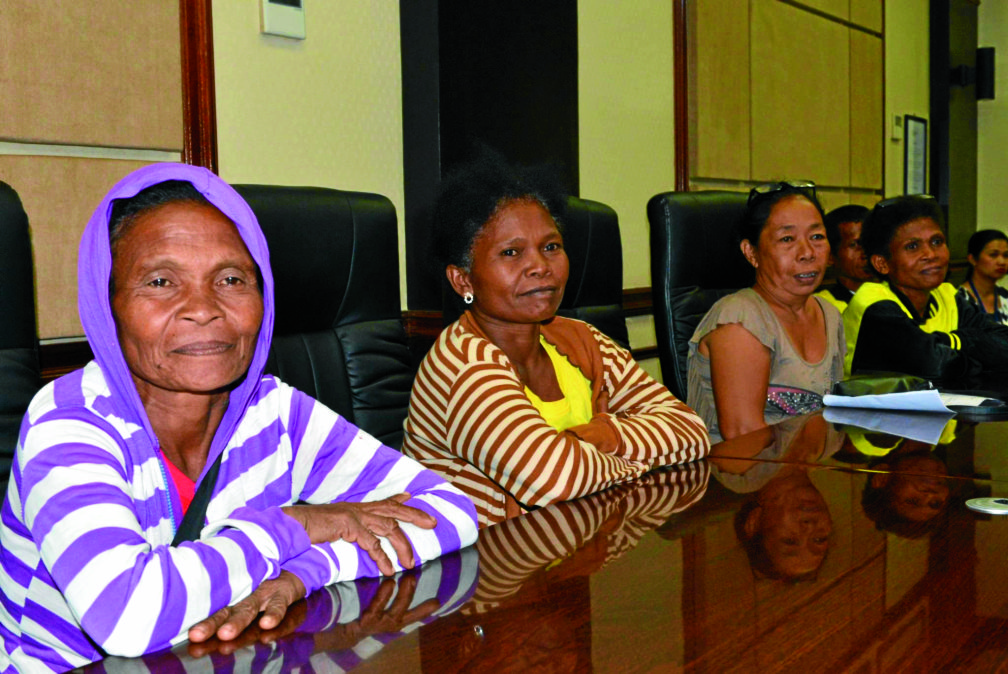‘Solar lolas’ from Aeta land raring to teach green tech

‘SOLAR LOLAS’ Call them late bloomers, but these Aeta grandmothers have just added twomore titles to their name: solar engineers and teachers. After a sixmonth training in India, the four have been provided a training center where they will teach indigenous communities how to use green technology. CONTRIBUTED PHOTO
CLARK FREEPORT—They are Aetas, they are women and they are elderly.
But despite being minorities three times over, Evelyn Clemente, Sharon Flores, Cita Diaz and Magda Salvador now play a big role in a green technology that brings light to people’s homes.
The four Aeta grandmothers, who are known as the “Solar Lolas,” joined officials here on Monday to forge an agreement that would provide them a training center for a project called “Tanging Tanglaw” at Clark Polytechnic.
Clemente and Flores are from Subic town in Zambales province, while Diaz and Salvador are from Bamban town in Tarlac province.
They were sent on a six-month scholarship by the Diwata-Women in Resource Development Inc. (Diwata) in September 2014 for training as solar engineers at the Barefoot College in India.
Founded by Sanjit “Bunker” Roy in Rajasthan, India, in 1972, the Barefoot College trains mostly illiterate grandmothers from India, Afghanistan, Africa, the Philippines and other developing countries in solar engineering so they can lead the solar electrification of their rural villages and transfer the knowledge to other women upon their return home.
The Super Lolas learned to fabricate, install, repair and maintain solar lighting equipment for several households in their villages.
Since then, they have been looking forward to being among the program’s instructors.
Bases Conversion and Development Authority chair Ma. Aurora Geotina-Garcia, Clark Development Corp. chair Eliseo Santiago and Tanging Tanglaw steering committee head Annie Dee signed the agreement.
“Our vision is to provide assistance not only for community development and support to basic services for one of our major stakeholders—the Aeta community—but more importantly to empower its women,” Garcia said in a statement.
Salong Sunggod, director of the National Commission on Indigenous Peoples in Central Luzon, said the project was “necessary in improving the lives of Aetas around Clark and Subic.”
Members of the indigenous group have lived on lands developed by the United States into the Clark Air Base and Subic Naval Base since 1902.
Following the Senate’s rejection of the extension of the 1947 Military Bases Agreement, the Philippine government developed these former base lands for civilian use, drawing in more than 400 local and foreign companies that employ over 150,000 Filipinos.
Former Ambassador Delia Albert encouraged the Aeta women and their supporters to make the project a success so it can be repeated in other parts of the country. TVJ